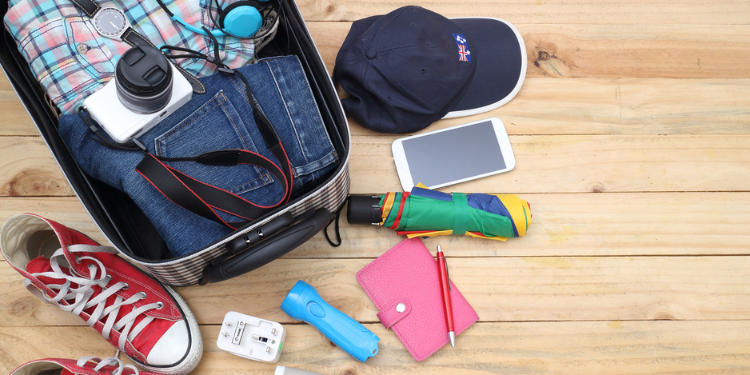
Have you been accepted into a university abroad? Congratulations! You are about to experience one of the most meaningful adventures in your life and reach a huge milestone. But don’t let other people’s “been there, done that” attitude predetermine your journey. The only preconception you should carry with you is that this will be a second to none experience. With September and the beginning of the term being just around the corner, we have composed a helpful guide on everything you should do before your departure to set the base for a fulfilling time abroad as an international student.
Take care of formalities
Applying for a student visa can be a long process, depending on the country you are going to study at and your nationality. In order to avoid stressful situations, get the ball rolling well in advance — about three to five months before the start date of your course. Contact the destination's embassy or consulate in your country for instructions, guidance, and clarifications, as details and misunderstandings can often cause significant delays with your visa application. Also, note that some countries such as the US require a student visa interview.
Track the whereabouts
There are many things to consider and evaluate before making your final decision regarding which university to attend. Where does it stand in the global ranking of institutions? Does it offer the degree you want to study? How much are the international student fees? Location is also one of the factors that will play a major role in your overall study abroad experience. There are pros and cons in both city universities and campuses, so make sure you decide based on your needs, budget, priorities, and aspirations. For example, if you study in a big city, you will be closer to big employers and various cultural experiences. However, studying in a smaller town gives more opportunities for group activities, and everyday costs such as dining out and transportation are less.
Find accommodation
Student life is usually revolving outside the house (unless there's a house party); in classes, the library, cafes, and bars. However, having a cosy place to withdraw when you feel like it, is vital for a healthy social and emotional development. Students don't need luxuries, and with some DIY and imagination, even a hideous place can obtain personality and style. Before you start checking online ads, the university residence website, and online international students groups define the top things you aren't willing to compromise such as ensuite room, near shops, close to a bus stop, etc. Also, consider the pros and cons of shared housing versus living on your own. Don't wait till the very last minute to look for accommodation, as you will be disappointed to discover that the early birds have already taken most convenient locations and quality housing.
Purchase health insurance
The purchase of health insurance isn't always optional; in some cases, coverage for the whole duration of your studies is required either by the university or the visa application (or both). There are many insurance plans to choose from, but try to stick with a plan which is comprehensive, affordable, and specially designed for your needs as an international student. In any case, your health insurance should cover you in countries where there's limited government-funded healthcare, in emergencies, and hospitalisation. Before you conclude to a plan, also check with your university: what health insurance plans do they suggest and how much do they cost?
Research the job market
You are moving abroad for studies, but there's no harm in looking forward and planning. Before you get too busy with classes, making new friends, and exploring a different culture, research the job market in the country you are heading to — what are the growing sectors? Who are the top employers in your field? Consider volunteering and internship opportunities as a way to grow your skills and introduce yourself to potential businesses. To succeed in your job search, update your resume and don't hesitate to visit the university's career advice office for some guidance.
Get connected
Once in the university environment, there's no doubt you will meet people you feel like knowing better, and people you instantly click with. However, before your arrival at the institution, take advantage of different social networks, and introduce yourself to the university's groups for international students. Networking prior to your departure, will help you feel more confident about your new endeavour and not alone in the anxiety of moving abroad. It's very likely that your study abroad friends will be for life, and no matter where you end up living after your studies, you will keep meeting in different parts of the world.
Learn about the local culture
Moving abroad means discovering new cultures, cuisines, traditions, and lifestyles. But before arriving on the spot, trying to wrap your mind around the way things work in your host country, make yourself aware of the cultural differences between your home and destination. Sign up with Expat.com to get access to a variety of angles and views via the forum and blogs sections, and browse the online expat guides to understand the context of the new culture you are about to throw yourself in. Being curious about your host country may not prevent you from a cultural shock on your arrival, but at least you can prepare yourself for what to expect.
Manage your finances
One of the common difficulties students face when moving abroad and probably leaving home for the first time is managing their money. Being responsible for expenses such as the rent, utility bills, groceries, and entertainment may be a heavy load on your shoulders. However, if appropriately managed, finances will naturally become part of your everyday life without being a nightmare. Download an expense manager application on your mobile to track the amount of money you spend and the directions you spend it towards. Also, research the banking options in your destination and inquire about student account offers. Don't wait until your first visit to the supermarket or the pub to find out about the local prices — obtain in advance information about the cost of living and note the values down.
Create a packing checklist
Sorry to be the bearer of bad news, but student rooms, especially inside the university residence, aren't spacious. Thus, we recommend leaving your home with the lightest possible luggage. Before you start packing, contact your new landlord or housemates to check what's already in the house or what you could buy together and share. Some things to bring with you are photos of your beloved ones for the moments when homesickness strikes, a torch, tupperware for your lunch, and some hangers.
Don't lose touch
Now that you are well-prepared, there's one last thing before you dive into one of the most rewarding experiences in your life — commit to staying in touch with family and friends back home. They won't necessarily understand everything new that happens to you abroad, the challenges you go through, or the personal growth which occurs to you. However, they will want to be part of your journey and support you throughout the ups and downs.



















